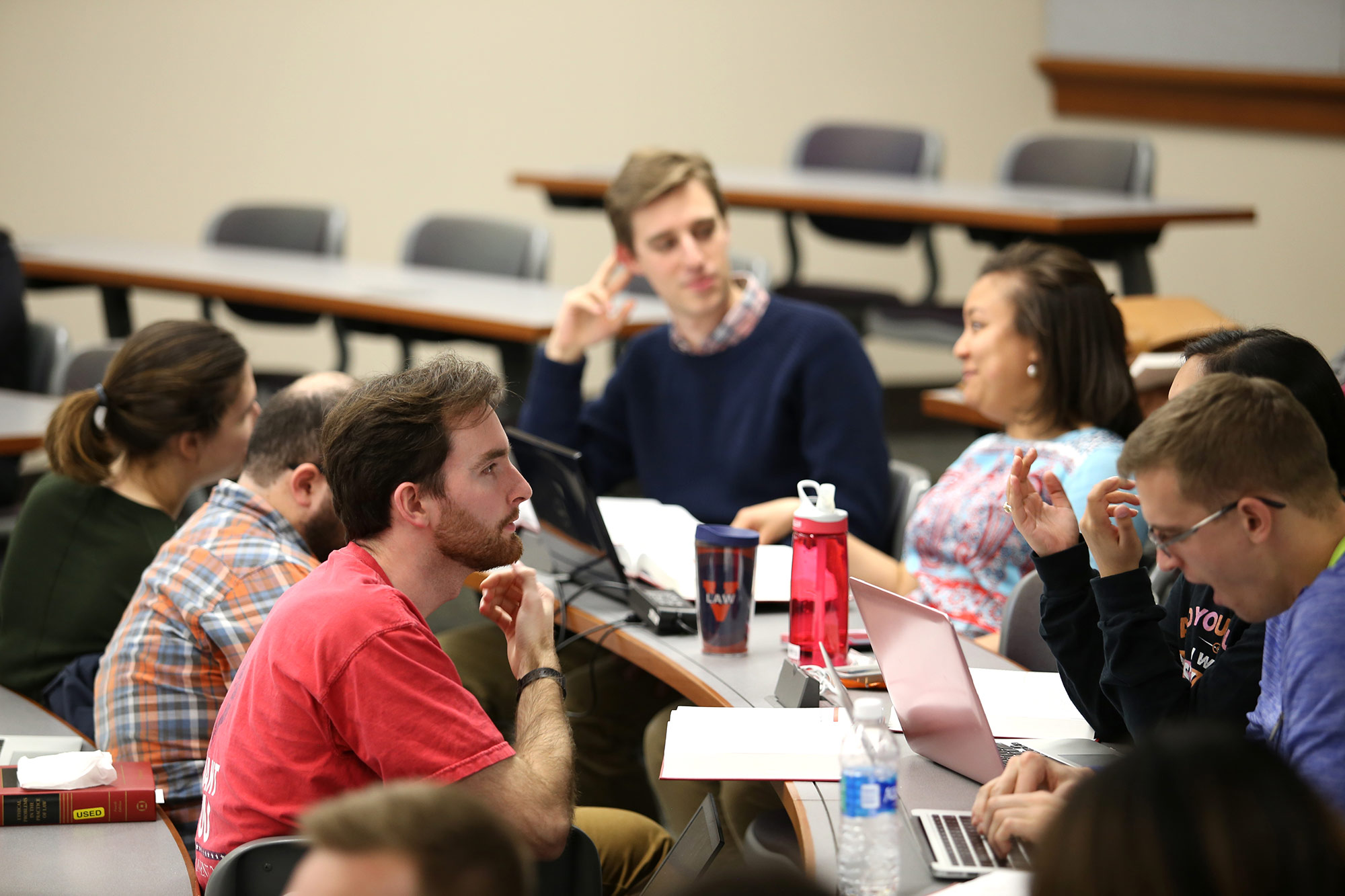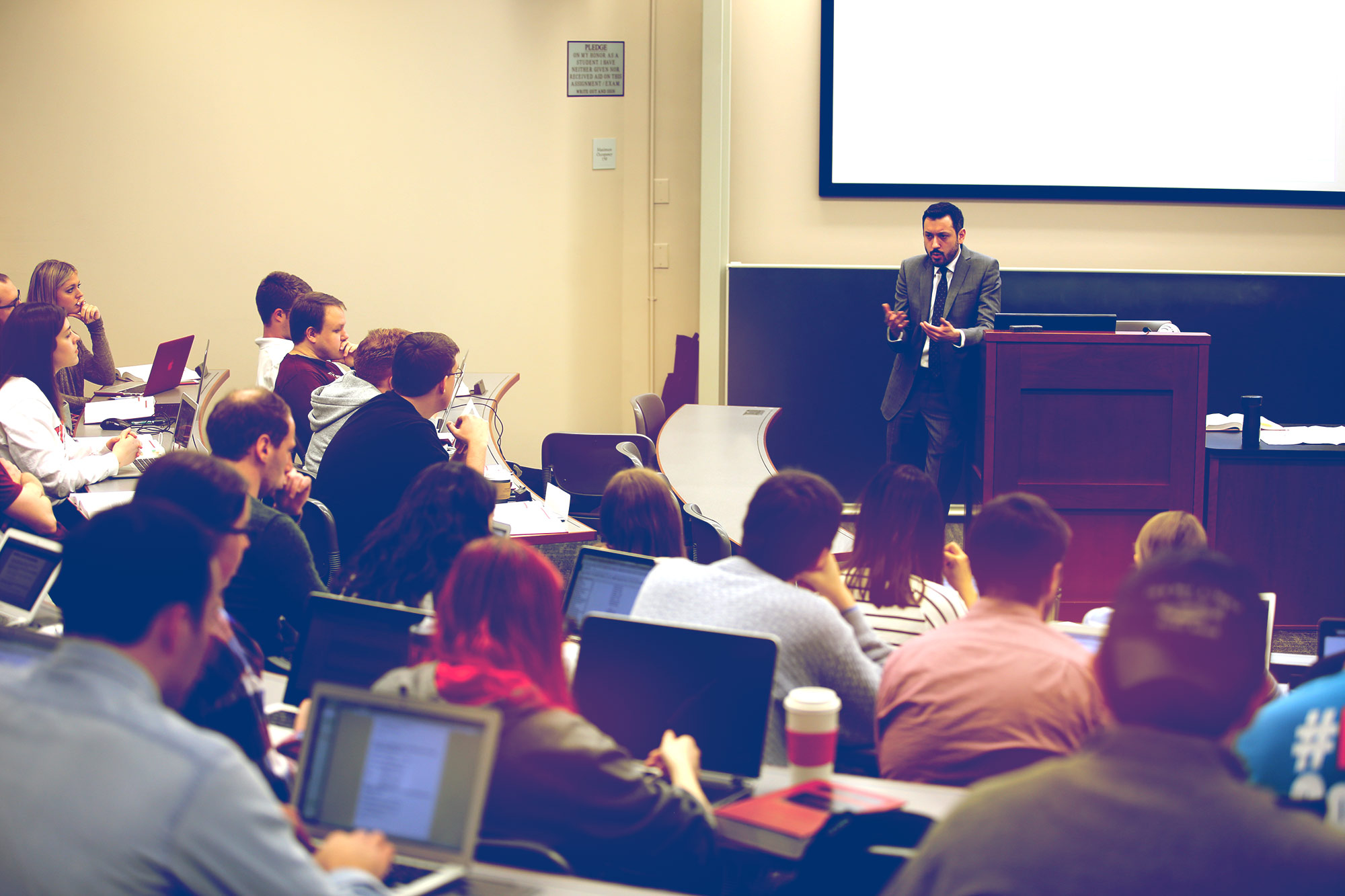A law firm is considering taking on new clients. It has been asked to represent two officers accused in a high-profile police brutality case. The firm is also considering whether to represent the police benevolence association in their area – a potential $10 million contract.
Which, if either, should they work for? Can they accept both clients?
Students taking a novel “Professional Responsibility” course at the University of Virginia School of Law are role-playing how they would respond to potential ethical challenges buried within everyday business decisions.
With any misstep, they could tank their law firm and torpedo their careers.
“With these scenarios, students get a feel for why ethics rules are harder to apply than they might think, and for the practical trade-offs involved,” said adjunct professor Ben Sachs of the two-credit course, which explores the creation and termination of the attorney-client relationship, the scope of representation, conflicts of interests, confidentiality and the attorney’s ethical obligations during litigation.

Students hash out their positions. (Photo by Eric Williamson, UVA School of Law)
Sachs, a 2009 graduate of the Law School, is vice president and general counsel at a D.C.-based tech company. He also teaches a UVA Law course on negotiation.
Sachs calls the classroom competition he devised “Occupational Hazard,” and uses the universal stick-figure symbol for “slip and fall” as the logo. He has broken the class into 16 groups of four to five students each, and each group represents a make-believe law firm deciding what its next move will be.
Working in teams with names they chose themselves such as “Blurred Lines” and “Better Call Saul,” students face dilemmas. How they handle the challenges affects their firm’s ethics score, reputation rating and cumulative billings. Maximizing all three at once is not always possible.
“But there is another question I ask them,” Sachs said. “Can you sleep at night with your decisions?”
While professional responsibility has long been taught at the Law School, Sachs’ approach is unconventional. He teaches a variation of the flipped-classroom model in which there are few traditional lectures; students do all their reading and preparation before the class meets and take short in-class assessments designed to mimic the Multistate Professional Responsibility Examination. By studying in advance the ethics rules that they’ll need to know for professional certification, students are better able to spend the rest of class time exploring the gray areas. The class satisfies the school’s professional ethics course requirement.
In the police-clients scenario, the student firms had different reasons for deciding which client to accept.
“We thought rejection of all parties would boost our reputation points because the general consensus of the nation seems to be anti-police,” one student said.

“So you rejected the case because defending police officers in a brutality action might not look great for you in the papers?,” Sachs asked.
“Exactly,” she said.
Another student was concerned that conflicts might arise later if the two policing-related parties were at odds in court. With the benevolence association’s $10 million hanging over their heads, “They have us on retainer, [so] they can get rid of us at any moment,” he said.
Sachs said it has been interesting to see how seriously students take the hypothetical billings and fictional threats to their reputations.
“Even though it’s a fictitious problem, students still find those competitive forces pushing them to make certain decisions,” he said. “Often, they will make decisions they feel are ethically permissible and are later surprised to learn they crossed an ethical line.”
To add realism, his game takes into account subjectivity: “Sometimes I introduce a bit of randomness,” Sachs said. “Not every court is going to review an ethics situation the same way.”
In those instances, Sachs said, he simply rolls the dice to determine the outcome.
Media Contact
Article Information
March 29, 2017
/content/law-students-test-slipperiness-ethical-slopes-new-course

